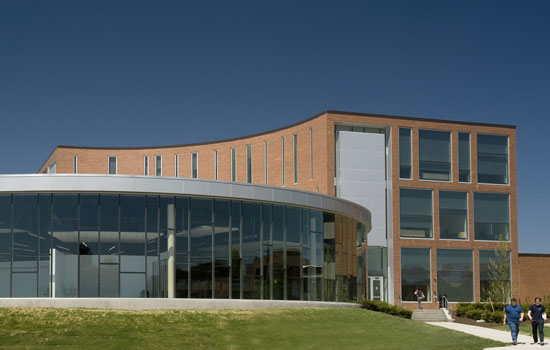The RCA works to create better cycling infrastructure and a stronger voice for cyclists in Rochester, NY.
For information on getting involved, visit rochestercyclingalliance.org
Saturday, January 30, 2010
Introducing Scott MacRae
Cheers,
Scott
Friday, January 29, 2010
The Open Planning Project
TOPP is a cross between a software start-up and a progressive policy think tank, and is made up of several smaller working groups. One group customizes and provides tech support for open-source mapping software that transit agencies use to keep track of their routes. Another works on applications that make it easier for people to communicate with city agencies-letting cyclists propose sites for bike racks to the city's DOT, for example. Another group produces Streetsblog, an opinionated blog on transportation issues.
Thursday, January 28, 2010
First indoor velodrome east of the Mississippi
CLEVELAND, OH (BRAIN)—Fast Track Cycling, Inc., a Cleveland-based, non-profit 501(c) (3) organization, has entered into a real estate purchase option agreement with the city of Cleveland to acquire a nine-acre vacant site formerly occupied by St. Michaels Hospital in Slavic Village.Fast Track plans to develop and operate an indoor recreational facility which will include a velodrome—a custom-built, banked bicycle track—as part of its mission to support track cycling and other recreational opportunities and promote health and wellness as well as youth programming.Cleveland’s velodrome will be only the third indoor velodrome of the 25 in the United States, along with those in California and Colorado.
Saturday, January 23, 2010
ENVIRONMENT: Cycling can boost the area's riches - Letters - Rochester City Newspaper
Thursday, January 21, 2010
Culver Road Reconstruction
Meeting Notice
Fwd: BikeIt organizing collective!
As promised, I've attached the BikeIt Rochester poster. Please put a local contact in the contact box in the lower left corner as well, so Rochester folks can start organizing with each other to go to Detroit! Also attached is a template for an outreach email that you could use for your various groups/list serves/web-sites/blogs. Please modify it as you see fit!
Also, if folks want to stay in the loop you can join our listserve at: http://groups.google.com/group/fingerlakesbikeit
Tuesday, January 19, 2010
America's 75 Worst Commutes, Rochester NY tops Portland OR
America
by The Daily Beast
Portland, OR may be a better place for bicyclist but we have an easier commute.Notice the quote;"As anyone who drives on Interstate 5 or listens to the traffic reports knows, I-5 and most of the
They are the highways to hell in the country’s most gridlocked cities. The Daily Beast crunches the numbers to determine your ultimate morning nightmares. How did your commute in rank?
http://www.thedailybeast.com/blogs-and-stories/2010-01-19/americas-75-worst-commutes/
#16, I-5,
Weekly hours of bottleneck congestion: 238
Worst bottleneck: Northbound, Marine Dr/Exit 307
Length of worst bottleneck: .76 mi
Weekly hours of congestion on worst bottleneck: 23
Speed of worst bottleneck when congested: 14.8 mph
Commuter Buzz: “,” wrote Gerald Fox. “There are numerous choke points and frequent incidents delaying traffic throughout the region.”
66, I-490,
Weekly hours of bottleneck congestion: 14
Worst bottleneck: Inner loop westbound, Washington St/Exit 14
Length of worst bottleneck: .27 mi
Weekly hours of congestion on worst bottleneck: 9
Speed of worst bottleneck when congested: 18 mph
Commuter Buzz: “The closing of the
National Bike Summit 2010
National Bike Summit 2010
March 9-11, 2010
Washington, D.C.
National Bike Summit 2010 - Building on 10 Years of Progress
Bicycling has come a long way in the last 10 years. Our movement has grown larger and more effective; the number of people riding is growing in almost every community in the nation. We need more people on bikes more often, and the reasons just keep on growing. Whether it’s obesity, health care, climate change, air quality, energy independence, traffic congestion, economic development or quality of life issues – bicycling has got to be part of the solution. In 2010, Congress and our Federal agencies will be setting national targets and goals for 2020. They will be writing transportation, climate, health care, natural resources and other critical pieces of legislation that will shape our future. Bicycling must be prominently featured in these important pieces of legislation, documents, funding streams and programs.
Ten years ago, the first National Bike Summit brought just over 100 advocates and industry leaders to Washington, D.C. – this year we need to be closer to 1,000 participants to make a strong impact. Join us and speak up for bicycling; discover how your voice can truly be heard. Help the League of American Bicyclists celebrate 10 years of progress, and help us propel into a new decade of the bicycle!
Source: http://www.bikeleague.org/conferences/summit10/index.php
Thursday, January 14, 2010
RIT’s University Services Center Certified LEED Platinum

Photo by A. Sue Weisler



